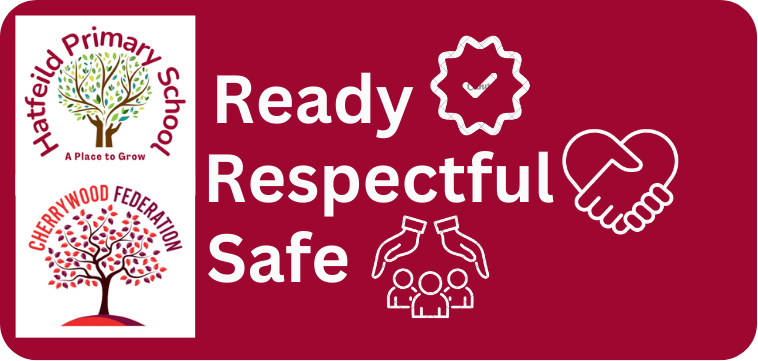First Aid and Medicines
 Medicines in School
Medicines in School
Hatfeild Primary School is an inclusive school, and we make every effort to ensure that all pupils are included in every aspect of school life. Pupils at our school with medical conditions are fully supported so that they have full access to education, including school trips and physical education.
The school is only permitted to administer medicine that has been prescribed by a medical professional.
If medicine must be administered during the school day, parents/carers must complete a form which is available at the school office.
Medicines should always be provided in the original container and be clearly labelled with the owner’s name. The only exception to this is insulin, which will generally be available inside an insulin pen or pump, rather than its original container.
Please ensure that medicines, particularly inhalers, insulin and eczema creams held in school have not passed their expiry date.
All children with long-term health problems which require intervention by school staff will have a care plan completed by their parents.
Parents must provide the school with sufficient and up-to-date information about their child’s medical needs. We believe they are a key partner and must be involved in the development and review of their child’s healthcare plan. We also believe that pupils are often best placed to provide information about how their medical condition affects them, and we involve them in the process as fully as possible.
Please note:
- No non-prescription medicine can be administered on school premises unless this forms part of a child’s individual healthcare plan that has been agreed by medical professionals. This includes medicine such as cough sweets/medicine, paracetamol, ibuprofen and anti-histamines.
- The administration of medicine is primarily the responsibility of the child’s parent. Wherever possible, parents should ensure that medicine is given to children before and after school. We will not administer medicine that is prescribed on a three times a day basis as advised by NHS England's published guidance for Clinical Commissioning Groups (CCGs) in March 2018. This dosage is prescribed so that it can be administered outside of school hours.
- Prescription medicines will only be administered at school when it would be detrimental to a child’s health or school attendance not to do so.
- In no circumstances will prescribed medication be administered without the prior written agreement of the parents or guardian. Parents are responsible for completing the appropriate medication in school form (which is available from the school office) and for keeping the school updated about any change in their child’s medical requirements. This will include providing details of the frequency and dosage of the medication and any side effects of the medication to be administered at school should be noted. No medication will be administered without prior receipt of these forms.
- We will only accept prescribed medicines that are in-date, labelled, provided in the original container as dispensed by a pharmacist and include instructions for administration, dosage and storage. The exception to this is insulin, which must still be in date, but will generally be available inside an insulin pen or a pump, rather than in its original container.
- The school will ensure the medication is administered under supervision and record the dose given to individual children, stating what, how and how much was administered, when and by whom.
- If a child refuses to take medicine or carry out a necessary procedure, staff will not force the child to do so. Parents will be informed immediately.
- When no longer required, medicines will be returned to the parent for safe disposal. Sharps boxes should always be used for the disposal of needles and other sharps.
First Aid
The school’s trained first-aiders will treat children for minor cuts and bruises and will telephone parents if children are unwell and need to be collected.
In an emergency, or if the school staff feel that an injury may be a serious cause for concern, the school will arrange for the necessary medical assistance (including transfer of a child to hospital by ambulance). At the same time, the school will contact the child’s parents/carers as soon as possible, but obtaining medical assistance will not be delayed pending contact with parents.
